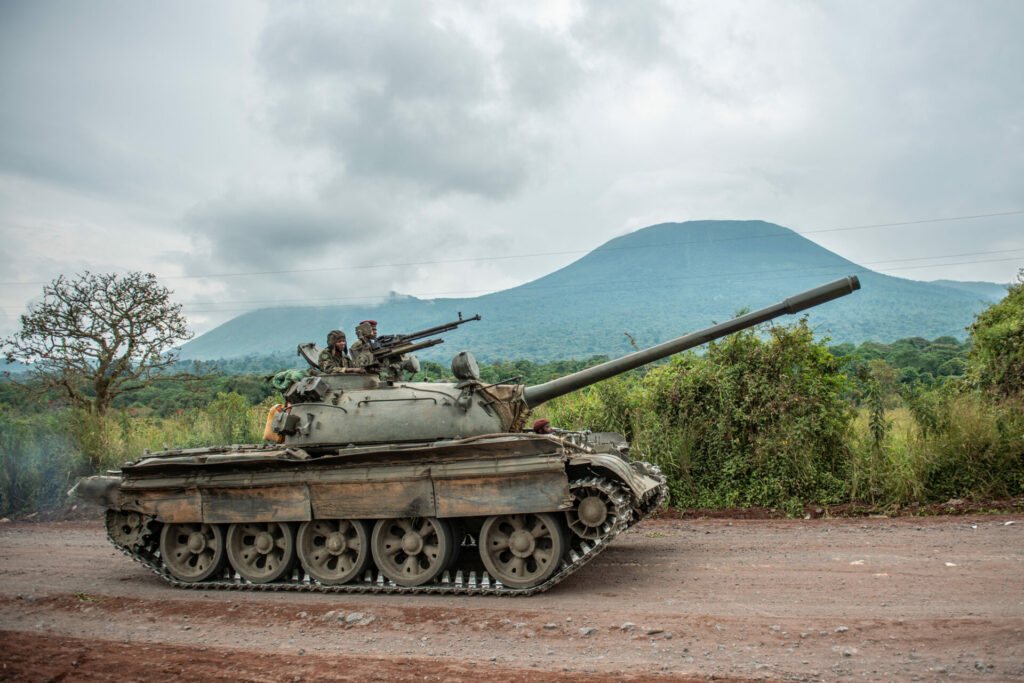High Representative Josep Borrell issued a statement this week condemning Rwanda on the escalation of hostilities in the Democratic Republic of the Congo (DRC), only two weeks after the EU signed a Memorandum of Understanding with Rwanda on Sustainable Raw Materials Value Chain.
In the statement, EU’s foreign policy chief wrote on behalf of the EU that it is extremely concerned by the escalation of violence in the eastern part of DRC and the worsening of the humanitarian situation exposing millions of people to human rights abuses including displacement, deprivation, and gender-based violence.
The EU condemns the latest offensive by M23 (an insurgent armed group of former soldiers which started a rebellion in 2012 against the Congolese government) and reiterates its strong condemnation of the actions by armed groups in eastern DRC.
The EU also underscores the obligation for all states to stop any support to these armed groups. In particular, the EU condemns Rwanda’s support for M23 and military presence on Congolese territory. It strongly urges Rwanda to immediately withdraw all its military personnel from the DRC as well as to terminate all support to and cooperation with M23.
Rwanda’s involvement in DRC was well-known to the EU when it entered an agreement raw materials with Rwanda. The memorandum of understanding (MoU), was signed in Brussels on 19 February by Commissioner for International Partnerships, Jutta Urpilainen, and Rwanda's Minister of Foreign Affairs, Vincent Biruta.
The MoU establishes close cooperation between the EU and Rwanda in five areas concerning raw materials that are important for EU’s Action Plan on Critical Raw Materials. It signals both parties' intention to strengthen their partnership for closer integration of raw materials value chains.
According to the MoU, Rwanda is a major player on the world's tantalum extraction. It also produces tin, tungsten, gold and niobium, and has potential for lithium and rare earth elements. However, the Congolese government accused Rwanda of plundering Congo’s mineral resources and the EU of being complicit. Rwanda should not export wealth that it does not have, DRC says.
In Brussels, a demonstration took place on 24 February in support of the people living in North-Kivu, in the eastern province of DRC. The protestors criticized the support for Rwanda whom they accused of backing the M23 rebel group.
A Commission spokesperson told The Brussels Times that the Commission concluded the MoU because the EU is keen to work with partners on sustainable and responsible development of raw material supply chains. The MoU with Rwanda is one in a series of strategic partnerships on raw materials with other countries, including DRC.
Has the Commission investigated the origin of the raw materials the EU plans to buy from Rwanda or addressed the Congolese allegations? “The MoUs signed with Rwanda and DRC are fully in line with the EU Great Lakes Strategy adopted on 20 February 2023 to formalise regional trade of minerals and sustainable development,” the spokesperson replied.
The Commission does not see any contradiction between signing an MoU with Rwanda while condemning its involvement in the civil war in DRC. The spokesperson emphasized that the goal is to increase traceability and transparency and to reinforce the fight against illegal trafficking of minerals.
“The MoU with Rwanda foresees support to Rwanda’s engagement with the Extractive Industry Transparency Initiative (EITI) - with €2.5 million from 2023 to 2027 - to increase due diligence and traceability. In particular, this includes the publication of key data for each mine and the use of scientific tools to check the origin of conflict minerals.”
M. Apelblat
The Brussels Times

